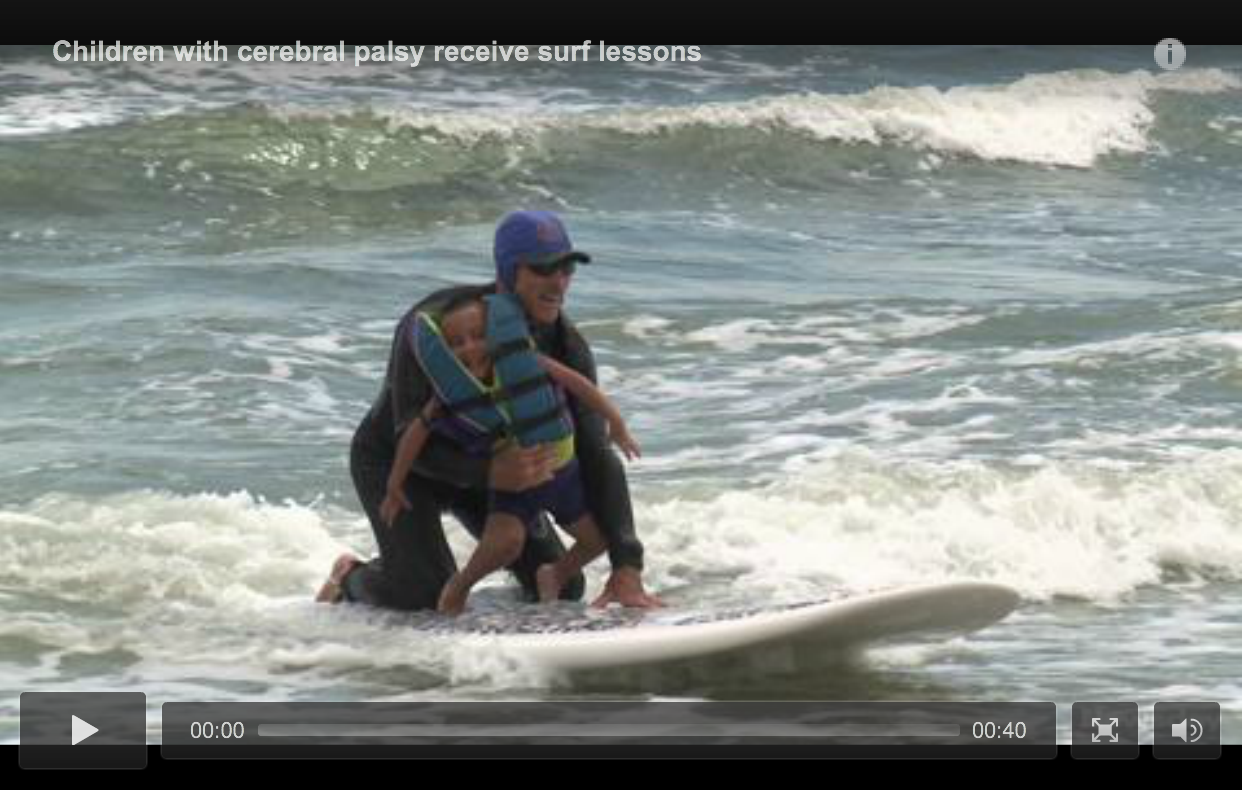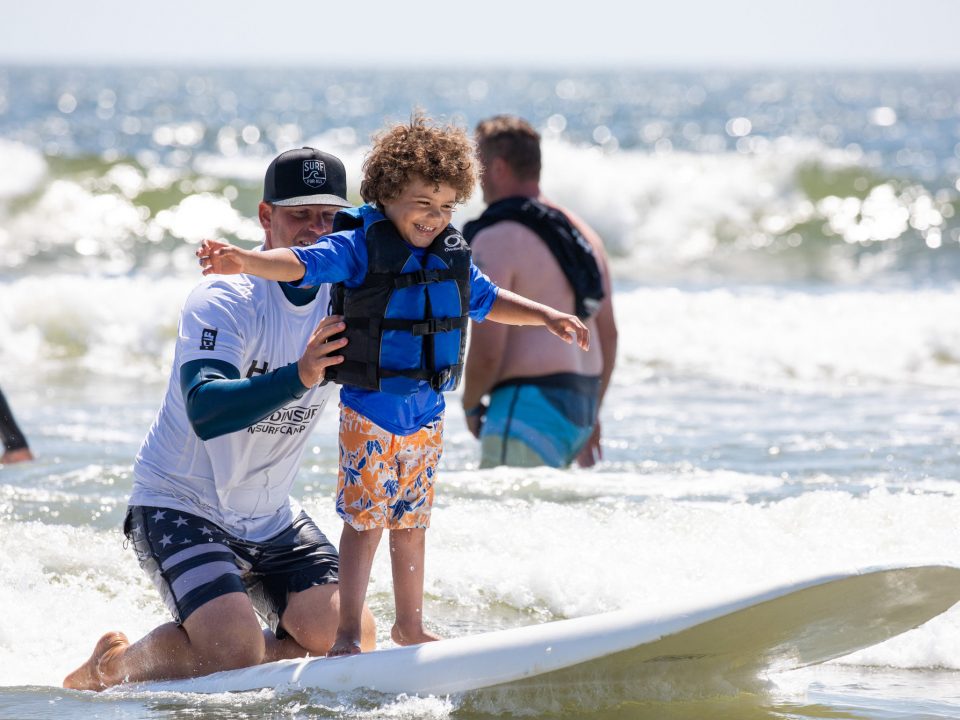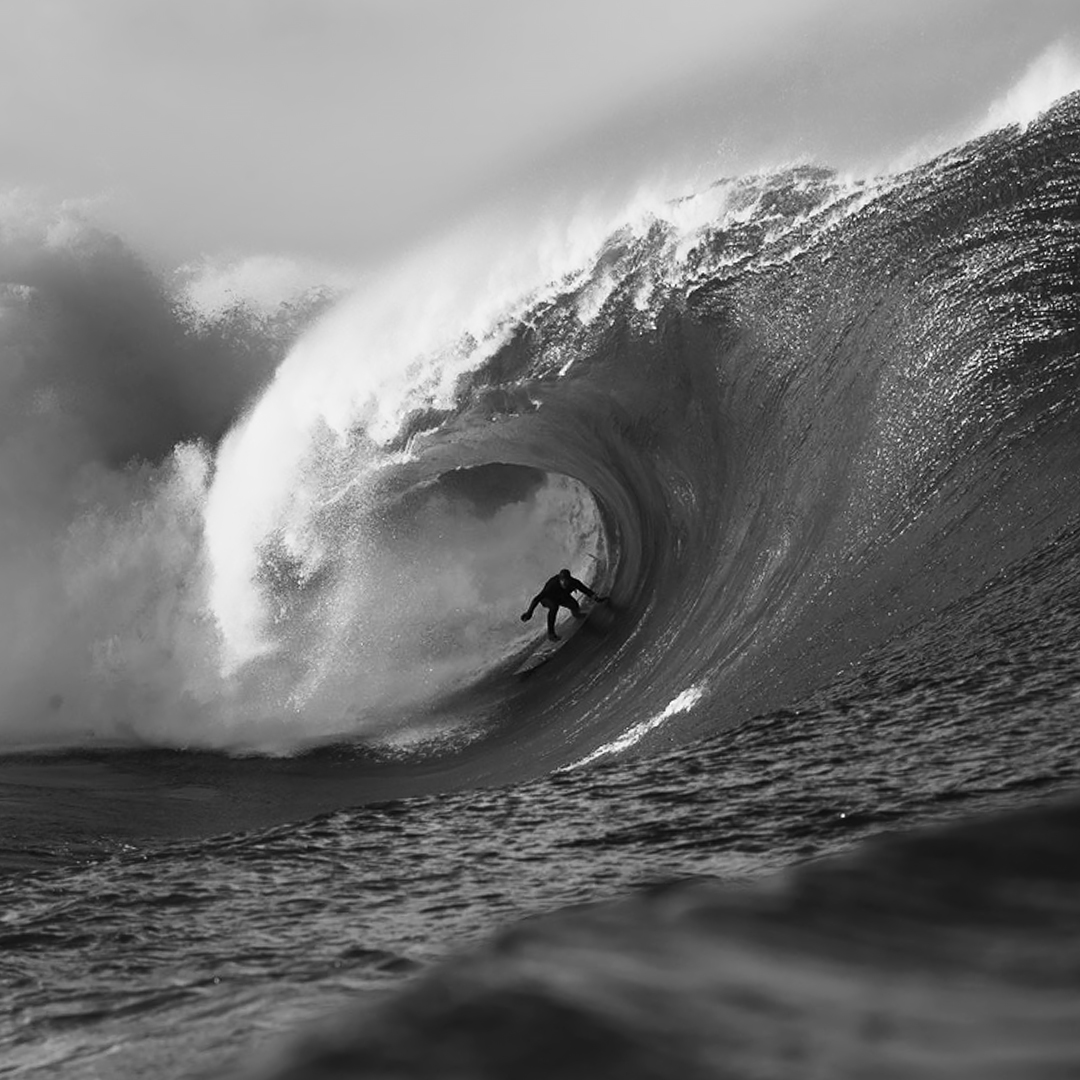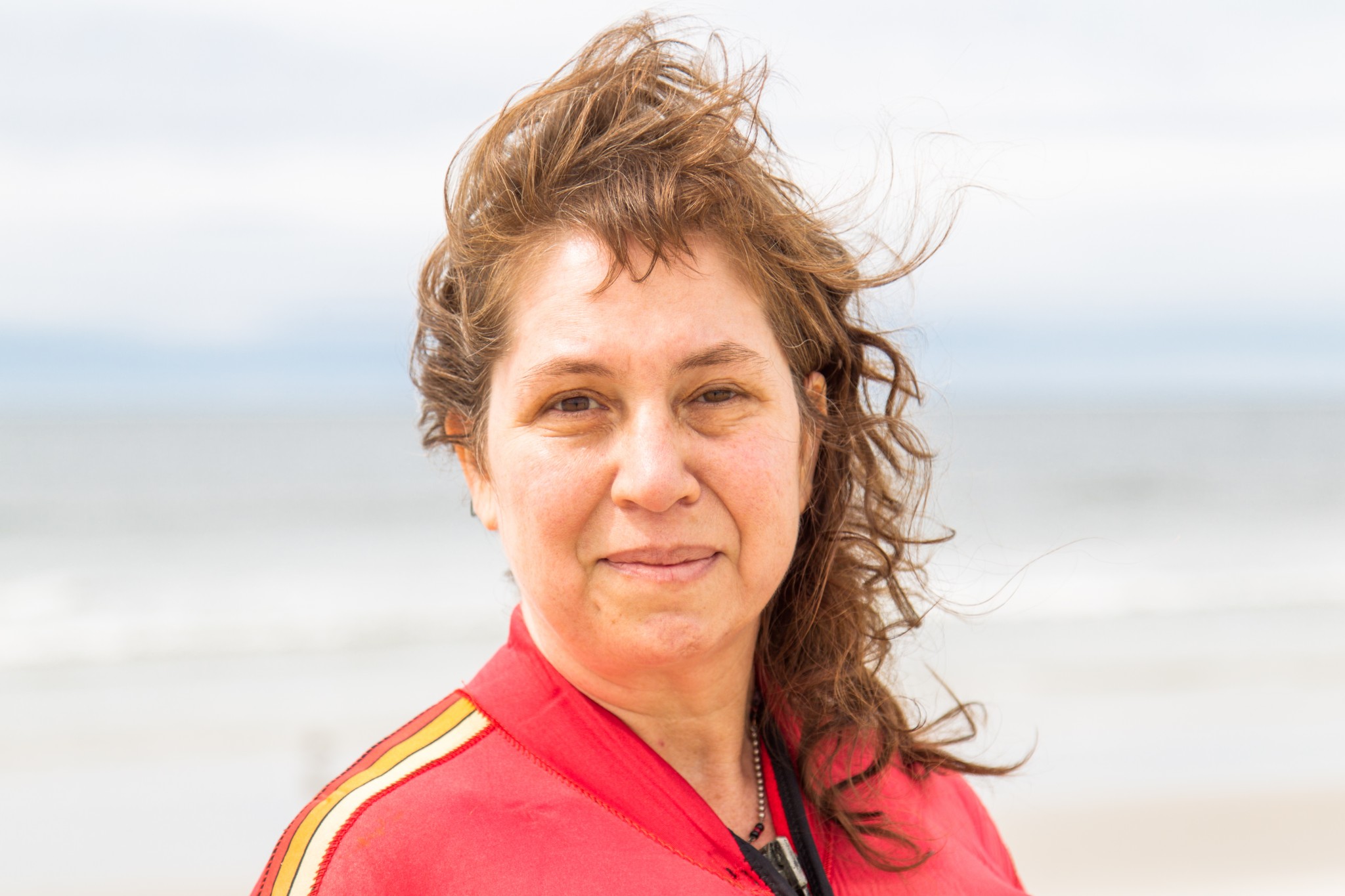
By STACEY ALTHERR. Special to Newsday
The surf is up in Long Beach, and for some, it means a ride of a lifetime.
Surf for All, a Long Beach nonprofit, takes war veterans, disadvantaged youth and children with a range of physical and developmental disabilities into the water to learn to surf. Some get to ride on the board with instructors, while others learn to master the skill on their own.
The effort was inspired by Surfer’s Healing, a national organization that comes to Long Island each year to teach children with autism how to surf.
Brothers Will, 30, and Cliff Skudin, 33, of Skudin Surf of Long Beach — a surf school located right on the beach — were approached in 2002 by Jim Mulvaney, a Long Beach resident and father of an autistic teenager, about expanding the program to more sessions during the summer.
“I saw a need,” said Cliff Skudin, who, along with his brother, had participated in the Surfer’s Healing event. “And not just for autistic kids.”
As far as the Skudins were concerned, no disability was too daunting to prevent them from exposing others to the benefits of the ocean.
The power of the waves and the restorative nature of the ocean are both familiar to the brothers, who are third-generation surfers. Sharing the experience with the thousands of children and adults who have been through the program is rewarding, Cliff Skudin said.
They also work with organizations such as Kids Need More, a Copiague-based nonprofit that helps children who are fighting life-threatening illnesses step away from their treatments and hit the waves.
Surf for All is headed by a board of directors made up of the Skudins and Mulvaney. The volunteers are all instructors who donate their time after their regular working hours. In general, the nonprofit does not hold fundraisers, instead relying on money raised through a donation button on its website or on equipment donated by the surf instructors, many of whom are young adults.
“I love being out there with the kids and showing them the feeling of surfing,” said T.J. Gumiela, 25, a Long Beach resident, professional surfer and Skudin Surf School director. “There’s nothing better than that.”
Even the young students at the school like to be a part of the experience, staying after lessons to help out in the water, Cliff Skudin said.
For Dylan “Surfing Samurai” Hronec, 23, who has cerebral palsy and uses a wheelchair, it’s almost a miracle that he can do what he does. Surfing now for more than three years, he only has to call one of the Skudins or any of the other volunteers, and they will get him on a board.
“It’s a freedom and independence that I don’t get anywhere else,” said the North Bellmore resident, describing his love of surfing. “My body cooperates better in the water.”
Adam Halpern, a Hofstra professor who teaches special education, was paralyzed after an car accident 11 years ago. He said Cliff Skudin came up to him one day while he was in Long Beach and asked him if he wanted to try surfing.
“Cliff said, ‘Let’s leave this wheelchair on the sand and let’s hit the waves,’ ” Halpern, 36, recalled.
This past summer, he went out about 10 times. Surfing has not only been fun, it has helped him heal emotionally, Halpern said. “It’s liberating.”
It’s hard to separate the Skudins from the water.
“I’ve been surfing my whole life,” said Cliff Skudin. His parents Dave and Beth, honeymooned in Hawaii and ended up staying for 15 years. He and Will were born there, but the family returned to Long Beach when Cliff was 5. Their brother Dave is a lifeguard in Honolulu, and brother Woody is in the Marine Corps. His mom often helps out the group.
Will and Cliff are big-wave surfers. Will is on the Big Wave World Tour circuit but comes home each year to help out with the children in Surf for All.
“It’s pretty unique that he teaches youth here in New York,” said Cliff Skudin. “We bring a lot of what we do, traveling in the big-wave world, to the camp,” including teaching children about ocean and wave conditions.
Before participants hit the surf, the Skudins gather them in a big circle and they all hold hands, and the siblings welcome everyone to the beach. “It’s to show we are unified,” said Cliff Skudin.
Next comes a safety talk from the instructors about how to “pop up” (stand) on the board and “wipe out” (fall off) correctly. Then the administrators and instructors, often with local volunteers Mary Stack and Florence Baum, help get the students in life vests, rash guards and other surfing gear.
Six years ago, Lisa Santos took blind students from Camp Abilities — which she founded and which is based at Adelphi University in Garden City — to their first Surf for All outing. She’s made it a part of her summer programming ever since.
On land, the children do something called “textile modeling,” where Santos or an instructor gets on the board and the children feel the position they take. Then, when the children are out in the water, the instructors are behind them, and tell them to get in the position as the wave takes hold of the board. The instructors start by getting up on the board and holding up the campers, but many times they eventually learn to go on their own.
She said her students often refer to the feeling of being on the surfboard as flying.
“Some can’t describe it because it’s something they never experienced before,” Santos said.
Surf for All welcomes more than 1,000 children and adults into the program each year in July and August. The nonprofit does not enroll its participants, instead relying on organizations already working in the special needs community. Mulvaney said the surf imparts many lessons, including what he calls “the dignity of failure.”
Many special needs children are coddled, said Mulvaney, noting that in the ocean they can make mistakes, and, if they fail, will only fall into the water.
Surf for All also serves the underprivileged, mainly from the local Martin Luther King Center, said Cliff Skudin. The nonprofit makes regular dates for the children from the center to come each summer and get on a board.
Improvising in the water
It can be physically demanding accompanying some of Surf for All’s clients out into the surf. Each disability means thinking through solutions.
“We have to get creative out there,” said Will Skudin. “One time, I had to make myself into a lounge chair. But we do whatever we need to do to have them catch a ride.”
The Skudins and their instructors said the emphasis is not just to orchestrate all aspects of riding the waves, but to help as little as possible so the person can do it on their own.
“I always feel like I’m a shadow in the water,” Cliff Skudin said. “I’m in the background. It’s not about me or what I do.”
For special education students who attend the Long Beach School District’s summer school program, surfing is part of the curriculum.
Jeanine Sorensen, a school psychologist who runs the program, said that since 2009, she has been taking the students in groups once a week during the summer, about 70 children in all. She considers the outings an important part of the students’ growth.
“Surfing not only makes them part of the community, but helps with their gross motor skills,” Sorensen said.
The program also has expanded to include adult organizations. Another group that partners with Surf for All is the Waterfront Warriors, a nonprofit also based in Long Beach.
Jerry Snell, the group’s president, said wounded veterans and their families come directly from Walter Reed National Military Medical Center in Bethesda, Maryland, to spend a week in July at the beach and in Long Beach. Many are severely injured and have lost limbs. The two days they spend with Surf for All tend to be the highlight of their trip, Snell said. Some of the soldiers and their relatives have never seen the ocean, and it’s a time for them to relax and be themselves, away from the glare of media or promotional events.
“Cliff and Will and the group are just tremendous,” Snell said, noting how the Surf for All founders and their instructors adjust to any situation. “Some are on seats, some are kneeling, some bring their prostheses. And they surf,” as do their families, Snell added.
The teachers learn lessons of their own from watching those they instruct conquer the waves.
“That inspires me as an individual, as a person,” said Cliff Skudin, who early on in the program went back to school to get a master’s degree in special education and physical education, including a focus on adaptive physical education.
“I thought, Look at these people with disabilities and what they accomplish.,” he said . . . It inspires me to set my own goals.”
Volunteer spotlight: Anthony Salerno
Through his work with Surf for All, Anthony Salerno has seen some amazing surfing moments.
“This one guy was blind — about 6 foot, 3 inches tall, 220 pounds,” and he was having trouble the first few tries, Salerno recalled.
Salerno held on to the back of the board, and told the man when to stand up. After a few tries and falls from the board, something happened that amazed the instructor.
“He rode a good 40-foot wave in,” Salerno said of the length of the ride. “I don’t know how he did it.”
Salerno, 48, is a lifelong Long Beach resident and instructor at Skudin Surf School. He has been with the volunteer program for the past three years.
Surf for All, a Long Beach-based nonprofit founded in 2002 by brothers Cliff and Will Skudin and their friend Jim Mulvaney, introduces children with developmental and physical disabilities, visual impairments and illnesses, as well as wounded war veterans and others, to the surf.
Salerno has been surfing since he was 13, and sees the water as both a healer and an equalizer. “Whenever you feel bad or something is bothering you, the ocean is a good place to be,” he said.
Many times, the novice surfers are nervous, but once Salerno calms them down, he said he sees a big change. “Once they get in the water, it’s like they turn into completely different people.”
Salerno said he learned from working closely with Cliff Skudin how to adapt the childrens’ abilities to the task at hand, and also appreciates the opportunity to inspire the nonprofit’s younger instructors.
“When they see Cliff or myself or Will — we’re the older ones — they get the idea that everyone’s equal,” he said. “They see us do it, and they want to be a part of it.”
Sign me up
Surf for All volunteers need to be lifeguard certified as well as certified surfing instructors.
Will and Cliff Skudin, owners of Long Beach-based Skudin Surf School, choose the organization’s volunteers from their own instructor ranks due to the nature of taking inexperienced swimmers and surfers, many with severe disabilities, out into the ocean.
Financial donations are always welcome, Cliff Skudin said, since Surf for All coordinates with other organizations that may have issues of transportation or special equipment needs, such as beach wheelchairs.
To make a donation, go to surfforall.org and hit the donation button.
You might consider . . .
THE WATERFRONT WARRIORS hosts wounded, ill and injured veterans and their families in the City of Long Beach. “The very least we can do for those who have offered themselves and their loved ones so fearlessly in the cause of our freedom, is to share our beach and community with them,” reads a message on the group’s website. Waterfront Warriors also provides assistance with other programs and institutions that might be of help to soldiers.The nonprofit was inspired by the Rockaway-based Greybeards, whose members brought individual soldiers to the Rockaways for a vacation.
Contact: Jerry Snell, 516-375-5966;
lbwaterfrontwarriors.org
***
The DOWN SYNDROME CONNECTION OF LONG ISLAND unites and assists families and individuals touched by Down syndrome. The group, which is run by parents, organizes social events for those with Down syndrome and their families. It partners locally with Good Samaritan Hospital Medical Center in West Islip.
Contact: 631-533-2864;
***
For more volunteer information and opportunities, contact the LONG ISLAND VOLUNTEER CENTER at 516-564-5482; longisland volunteercenter.org




